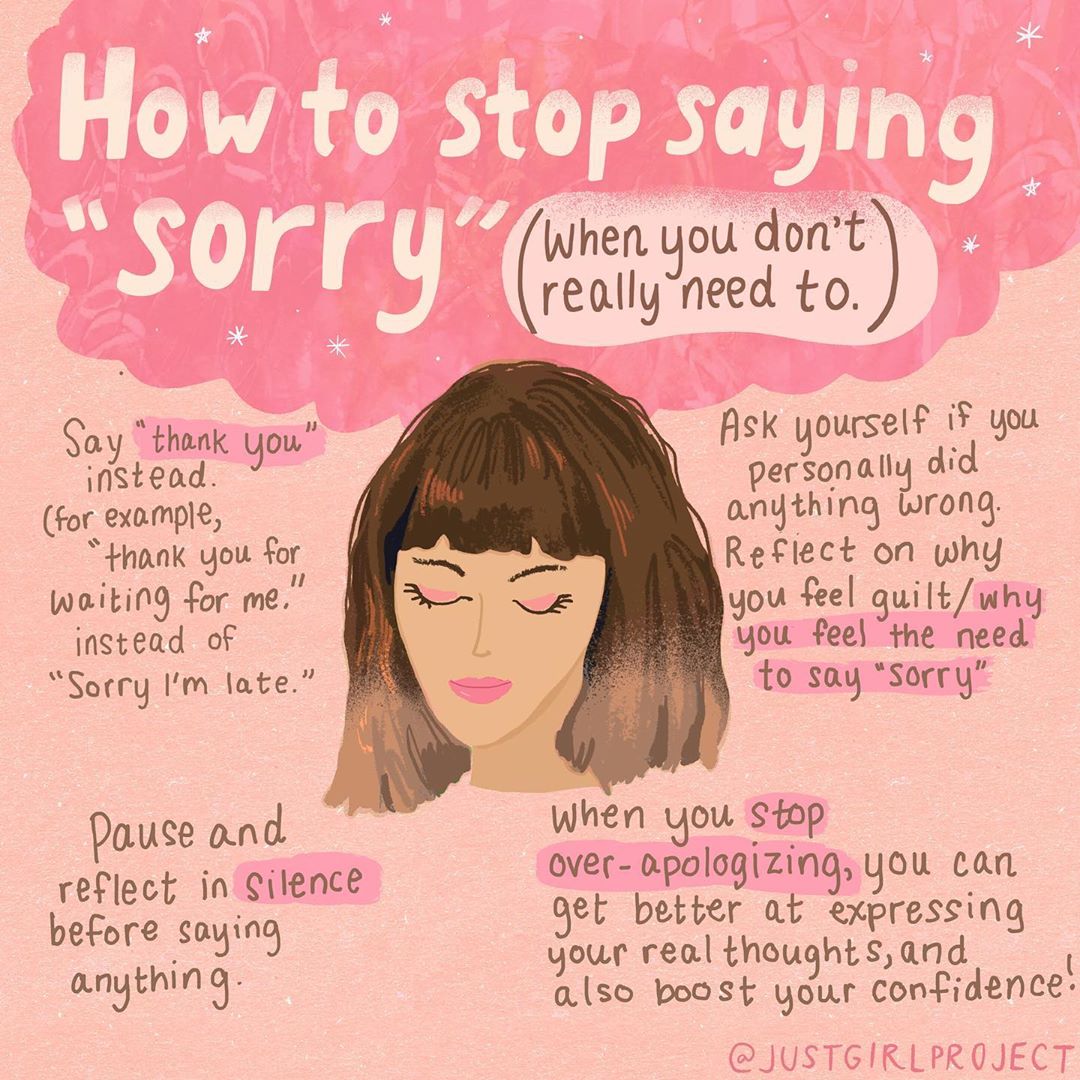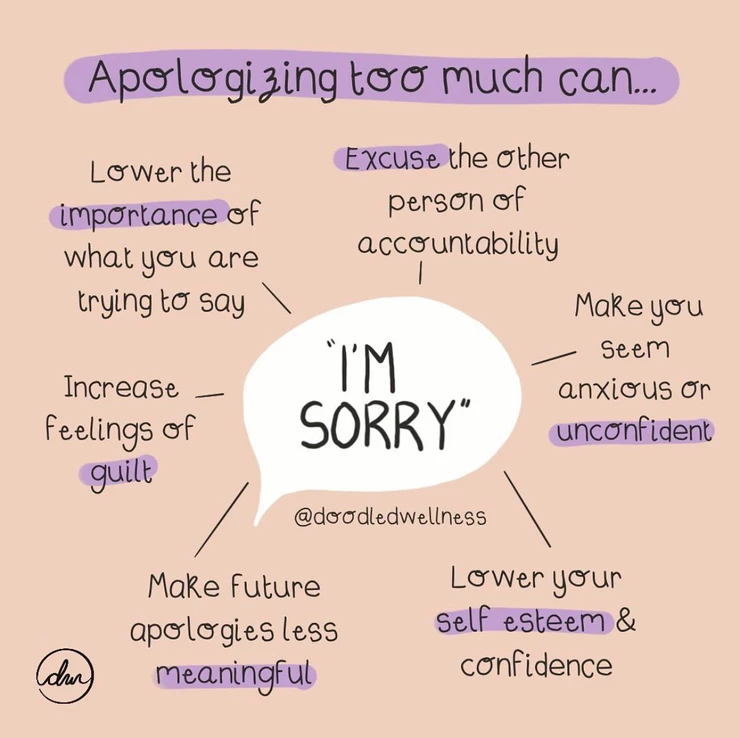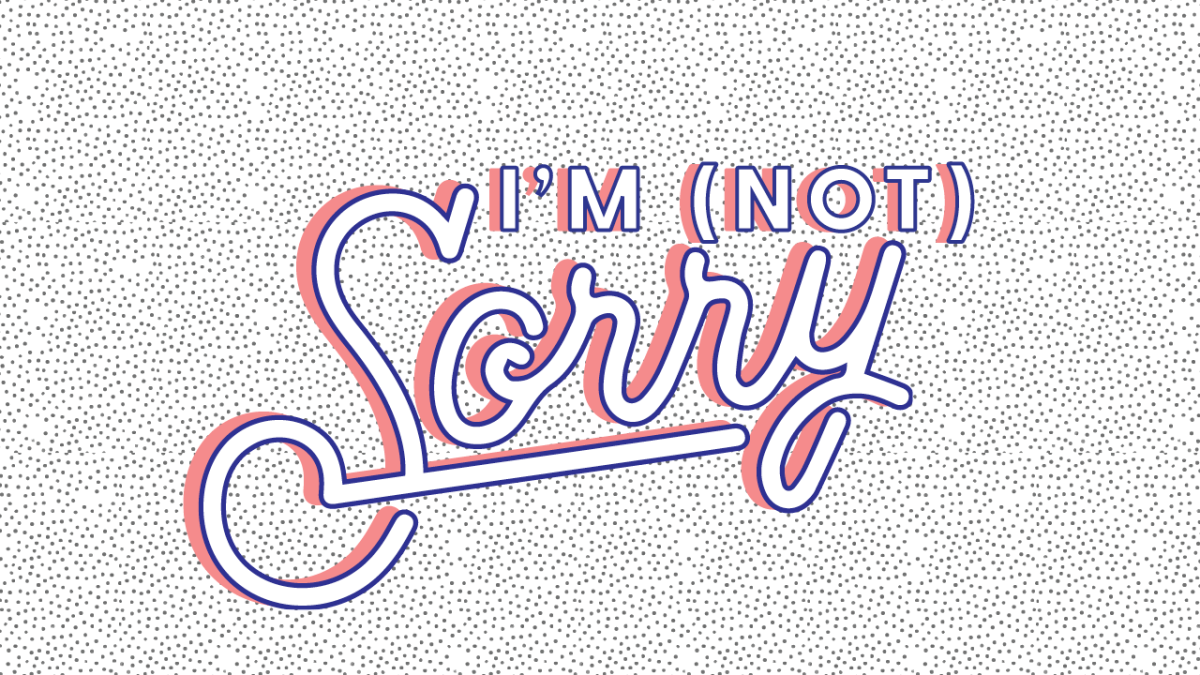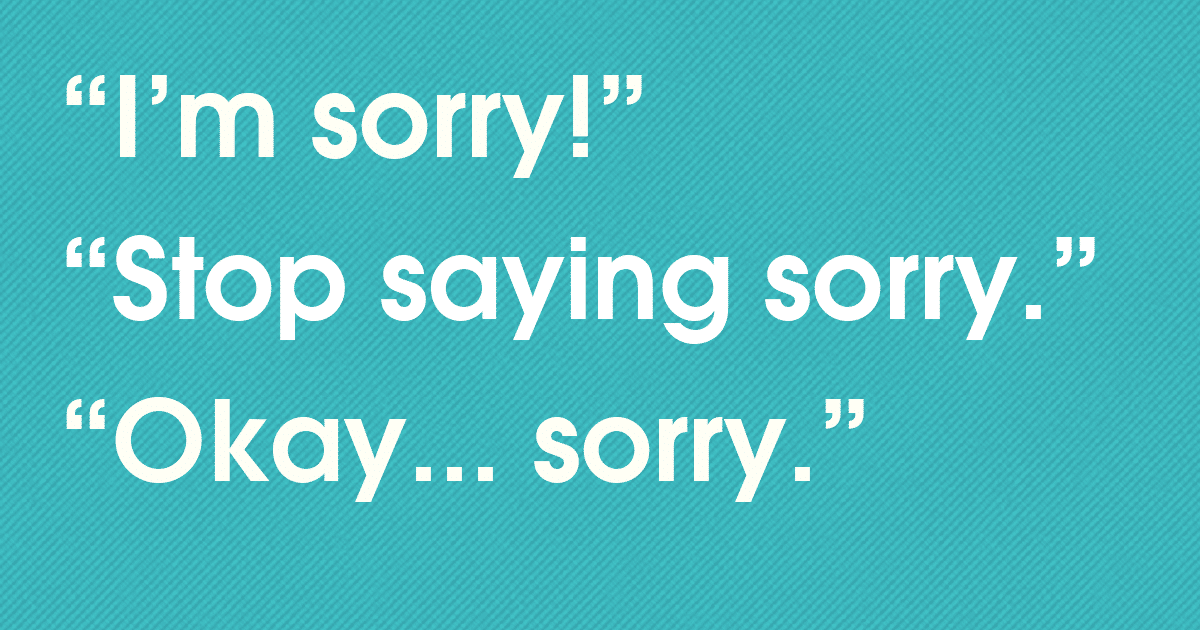By Rania Tsoli,
Thanking someone when they treat us nicely and apologizing to them when we treat them poorly are considered to be some of the most important lessons one can learn. Even so, it is most definitely not uncommon for some people to neglect those lessons, seemingly having erased the words “thank you” and “sorry” from their vocabulary. Focusing on the latter, honest apologies are nowadays thought to be hard to find, with people admitting their mistakes and asking for forgiveness when they are at fault being considered rare by many. On the other end of the spectrum, however, there are many people who do not only apologize for their mistakes, but for things they do not need to apologize for, as well. This kind of behavior is widely known as over-apologizing, and the causes of it are numerous. In order to properly wrap our heads around the phenomenon and discover ways to keep our apologies under control, let us start by exploring the reasons that lie behind every unnecessary apology that many of us may spontaneously blurt out.
As established previously, over-apologizing refers to saying “I am sorry” when you do not really have anything to apologize for. Maybe you have not actually done anything wrong but cannot help feeling guilty or anxious, or maybe you are used to taking responsibility for others’ mistakes, problems you did not cause, and situations you have no power or control over. One of the main causes of over-apologizing is actually low self-esteem, often deeply connected with people-pleasing tendencies. Constantly thinking that you are the one at fault, thinking of yourself as a difficult person that is asking for too much and has unreasonable demands, or believing – whether that is consciously or subconsciously – that you are somehow always causing problems and doing things wrong: these are all results of thinking of yourself poorly and not having built a healthy amount of confidence.

Many people with low self-esteem can also develop people-pleasing tendencies as they grow older: needing a confidence boost earned by others’ approval, they constantly strive to be considered nice, polite, and kind-hearted; again, a behavior that is of a subconscious nature more often than not. You might find yourself caring deeply about others’ opinions, so deeply that it eventually becomes too much: craving other people’s good words to a high degree and counting on them to feel confident and secure with who you are can prove to be quite a toxic pattern for not only yourself but your relationships with others as well. When a person depends on others to feel good about themselves, they are scared to risk disappointing the people around them, because they often need others to feel proud of them in order to be able to think highly of themselves, too.
However, a fear of making mistakes and disappointing others does not always stem from people-pleasing tendencies; it is just as possible that such fears are a result of mental disorders such as anxiety disorders, OCD (obsessive-compulsive disorder), and even PTSD (post-traumatic stress disorder). People diagnosed with anxiety disorders can often over-apologize as a response to stress, fear, nervousness, or worry, as well as in social circumstances which they may find to be awkward or nerve-wracking. Moreover, clinical psychologists have supported time and time again that people diagnosed with OCD can often be very sensitive about harming others, as well as fearful of appearing overly assertive or aggressive. By apologizing excessively, they feel like they are undoing any harm they believe they may have caused, and therefore allow themselves to feel reassured and comforted.

People who have been through traumatic experiences – with many of them likely to have developed PTSD, as well – are also quick to apologize when they do not need to, if a situation triggers an unpleasant memory of abusive behaviors and tactics – like gaslighting, for example – being directed towards them. Over-apologizing is also extremely common amongst perfectionists: people that always have high expectations for themselves and sometimes set the bar an inch too high are very likely to find it hard to tolerate even the smallest of their mistakes, with that pattern being repeated in their relationships with others too, hence their impulsive apologies being so frequent. Besides all the examples mentioned above, however, over-apologizing is admittedly a bad habit that sticks with you the more you do it; thankfully, there are many ways to keep your apologies under control.
The first thing one can do in order to start taking control over their apologies is to realize exactly where their overly apologetic nature seems to be stemming from. By taking a closer look at our past and the way it has shaped our minds and personality, we can understand ourselves and the patterns we have developed over the years on a deeper level, making it easier to find the roots of an issue, in this case, it being an excessive need to apologize and filter any demands in fear of being viewed as too assertive, demanding or difficult. After having explored your inner world, there are some seemingly small, yet tremendously important things you can do in order to improve the situation, one of them is thinking through the situation and deciding on whether an apology is truly necessary when you are about to say “sorry” to someone: realizing that you do not have to apologize for your feelings and needs, any questions you might have, things that you cannot control or for others’ mistakes is the key to knowing if you really need to say “sorry”.

Once you have thought it through and have decided that there is actually no need for an apology, you can turn the “sorry” you were just about to say into a “thank you”, and express gratitude instead of negativity and regret. For example, instead of apologizing to someone because they ran an errand you were planning on running yourself, you can just as easily say something along the lines of “thank you for helping me out”: a phrase that not only sounds more pleasant to the receiver but leaves you feeling more positive and confident, as well. By finding other ways to express yourself and starting to turn your unnecessary apologies into expressions of your compassion, you can finally be truer to your authentic thoughts and feelings and lean into a more confident and determined side of yourself.
Having the ability to apologize with ease can be considered to be both a blessing and a curse; being able to admit your faults and let go of your pride is an invaluable trait to have. However, constantly feeling like you did something wrong when you’re not really at fault and making a habit out of apologizing even when unnecessary can prove to be extremely harmful to your mental health, as well as your interpersonal relationships. Thankfully, the over-apologizing phenomenon can be controlled and battled in various ways, which all aim towards the same goals: diving into your past, analyzing your inner world and starting to handle yourself with more care and respect, with you eventually gaining your confidence back, and feeling as powerful as you truly are.
References
- Why Some People Over‑Apologize, And Others Never Do, theswaddle.com, Available here
- Why You Over-Apologize and How to Stop, livewellwithsharonmartin.com, Available here
- Over Apologizing for Everything? 5 Ways to Stop Saying Sorry Too Much, thelawofattraction.com, Available here




